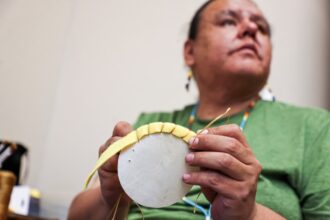The British Columbia government has initiated a comprehensive review of its Home Share program following the troubling death of Florence Girard, a 54-year-old woman with developmental disabilities who died while in care. Found severely malnourished at just 56 pounds, Girard’s death has exposed critical gaps in a system designed to provide supportive living arrangements for some of the province’s most vulnerable citizens.
“What happened to Florence represents a catastrophic failure of oversight,” said Jane Robertson, advocate with the BC Disability Alliance. “Someone entrusted to receive care instead suffered neglect that ultimately proved fatal.”
The Home Share program, administered by Community Living BC (CLBC), places adults with developmental disabilities in private homes where caregivers are paid to provide support and integration into family life. Currently serving approximately 4,200 individuals across the province, the program has been promoted as offering more personalized care than institutional settings.
Documents obtained through freedom of information requests reveal disturbing patterns of inconsistent monitoring and insufficient caregiver screening processes. In Girard’s case, her caregiver, Astrid Dahl, was convicted of criminal negligence causing death and sentenced to three years in prison—a rare prosecution that disability advocates say highlights how serious the oversight failures were.
“We’ve documented at least 25 cases of concerning neglect in these arrangements over the past five years,” said Michael Chen, researcher at the University of British Columbia’s Center for Inclusion and Citizenship. “The tragedy is that many of these situations were preventable with proper monitoring.”
The provincial review, expected to last six months, will examine caregiver qualification requirements, monitoring protocols, and complaint mechanisms. Minister of Social Development Nicholas Simons has promised that the findings will lead to “meaningful reform” rather than superficial changes.
“The independence that Home Share programs can offer remains valuable,” Simons stated at a press conference. “But we cannot call ourselves a compassionate society if we’re failing to protect people in our care.”
Critics point to systemic funding issues as a fundamental problem. CLBC currently pays Home Share providers between $1,100 and $3,700 monthly depending on the individual’s support needs—rates that some argue are insufficient to attract qualified caregivers or provide adequate support.
Family members of Home Share participants have expressed mixed feelings about the program. “When it works well, it’s transformative,” said Eleanor Westfield, whose brother has lived with a Home Share family for eight years. “But there’s this constant fear that something could go wrong and no one would notice until it’s too late.”
The review comes amid increasing national attention to disability support systems across Canada, with advocates pushing for federal standards to prevent provincial disparities in care quality. British Columbia’s findings could potentially influence policy development in other provinces facing similar challenges.
As families await the review’s conclusions, Girard’s legacy raises profound questions about society’s commitment to its most vulnerable members. How do we balance the desire for community-based living with the absolute necessity of rigorous protection for those who cannot advocate for themselves?























